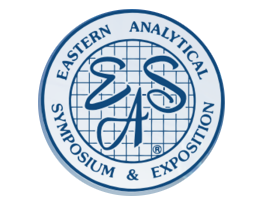
State University of New York-Buffalo
Luis A. Colón earned the B.Sc. degree in chemistry from the University of Puerto Rico (UPR) at Cayey. He worked in the pharmaceutical industry as Senior Chemist for a few years before starting graduate school in the Department of Chemistry at the University of Massachusetts-Lowell in 1987. He completed his Ph.D. degree in 1991 under the direction of Professor Eugene F. Barry. His dissertation work concentrated on the development of plasma emission detection schemes for liquid chromatography. From 1991 to 1993, Colón undertook postdoctoral studies at Stanford University under the direction of Prof. Richard N. Zare. His work in the ZareLab focused on the development of electrochemical and chemiluminescent detection schemes coupled to capillary electrophoresis (CE) for the detection of carbohydrates and amino acids. In 1993, Colón joined the faculty in the Department of Chemistry at The State University of New York at Buffalo (UB), becoming full Professor in 2005; served as Chair of the Department (2009-2012); and now is the A. Conger Goodyear Chair Professor of Chemistry. He also serves as the Associate Dean of the UB Graduate School.
Colón’s research interests are in the field of micro/nano chemistry, with particular focus on separation science; this includes the development of chromatographic media and column technology for chemical separations (HPLC, CE, CEC, solid phase extraction), detection schemes for monitoring mass-limited (i.e., micro scale) samples, the use of nanomaterials in separations, and the development of new separation strategies to analyze complex chemical or biochemical sample mixtures (e.g., biofluids, antiviral drugs in cells, protein digests). Colón and his team have provided pioneering contributions to the development of CEC, the synthesis of silica-hybrid chromatographic materials, the use of submicron particulates in CEC and HPLC, and more recently to the study and use of nanotechnological advances in separations science. Colón is authored of over ninety research publications including seven US patents. His research work has also led to over 420 presentations, of which he has delivered more than 180 invited lectures at national and international universities, conferences, and at industrial and national laboratories.
Luis Colón has been actively involved in the mentoring and training of separation scientists (27 PhDs, 6 Posdocs/Visiting Scholars, 14 Masters, and >45 undergraduate researchers). Most notably is his excellence in the mentoring of students and his contributions to advancing diversity and increasing participation in the chemical sciences, for which he has been recognized at the local and national level. He is member of the American Chemical Society (ACS), the American Association for the Advancement of Sciences (AAAS), The Society for Applied Spectroscopy (SAS), and the Royal Society of Chemistry (RSC). Colón has provided service to the profession with leadership roles within his institution, professional organizations, editorial responsibilities, and organizing symposia (e.g., Executive Committee of the ACS Subdivision of Chromatography and Separation Chemistry, Editor of Analyst, the Governing Board of the Northeast Regional Chromatography Discussion Group, local ACS and chromatography groups governance, and others).
Among Colón’s accolades one would find the NSF Award for Special Creativity, RSC Fellow, the ACS Stanley C. Israel Regional Award, The 82nd Jacob F. Schoellkopf Medal by the ACS-WNY, Geoffrey Marshall Mentor Award by the Northeastern Association of Graduate Schools, the A.A. Benedetti-Pichler Award by the American Microchemical Society, AAAS Fellow, ACS Award for Encouraging Disadvantaged Students into Careers in the Chemical Sciences, and the U.S.A. Presidential Award for Excellence in Science, Mathematics, and Engineering Mentoring (PAESMEM).
Photo credits: Jason Miccolo Johnson for NSF
